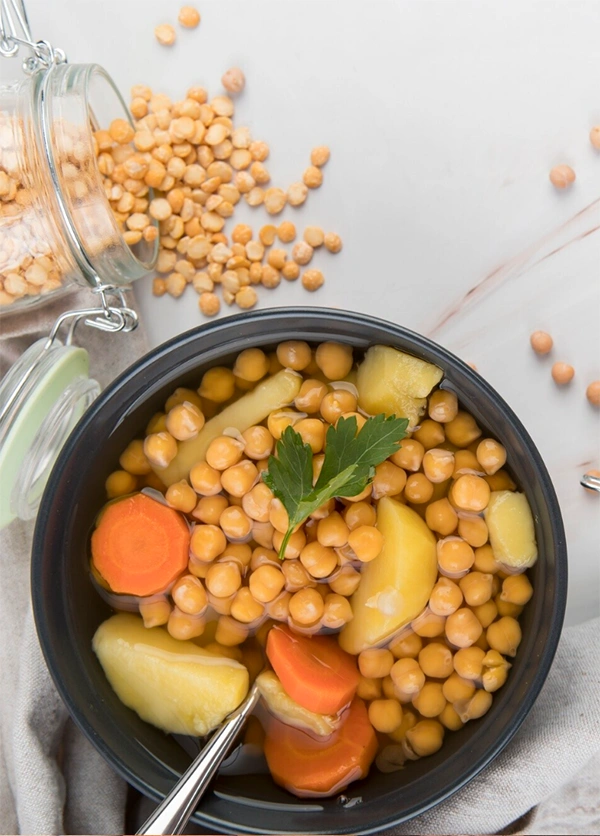

Top Health Benefits of Chickpea and vegetable stew You Need to Know
This chickpea and vegetable stew is a highly nutritious dish, packed with plant-based proteins, fiber, and essential vitamins. Chickpeas provide a rich source of protein, making it an excellent option for vegetarians and vegans, while the vegetables like carrots, potatoes, and onions add vitamins A, C, and B6, as well as antioxidants. The use of olive oil not only enhances the flavor but also adds heart-healthy monounsaturated fats. This meal is a great choice for anyone looking to improve digestion, maintain heart health, and boost energy levels. The combination of high fiber and complex carbohydrates helps keep you feeling full for longer, making it a satisfying and wholesome meal.
Recipe :
For 4 people
Enjoy your delicious chickpea and vegetable stew!
When preparing this chickpea and vegetable stew, it’s important to plan ahead by soaking the chickpeas well before cooking. This step helps reduce cooking time and ensures they cook evenly. If you're using a pressure cooker, you can cut down cooking time significantly. Be sure to sauté the onions and garlic until golden to release their full flavor before adding the vegetables. Additionally, don't skip the seasoning step, as the spices like turmeric, cumin, and black pepper not only add flavor but also contribute to the anti-inflammatory and antioxidant properties of the dish. To make the stew more filling, you can adjust the ratio of vegetables to chickpeas based on your preference. For a thicker consistency, consider mashing some of the chickpeas after cooking, which will help thicken the broth and give it a creamy texture.

This chickpea and vegetable stew is highly versatile and can fit into many different dietary plans. It is vegan and vegetarian-friendly, making it a great option for plant-based eaters. It’s also gluten-free, which means it can be enjoyed by those with gluten sensitivities or celiac disease. For individuals following a low-calorie diet, this dish is a healthy and filling option, particularly when prepared with minimal oil. However, it is not suitable for those on a ketogenic or paleo diet due to the presence of chickpeas and potatoes, which are high in carbohydrates. Additionally, while this dish is high in protein, it may not provide enough protein for those on a high-protein diet unless they increase the chickpea content or add additional protein sources. For those following a DASH diet, which focuses on reducing sodium and promoting heart health, this recipe can be a great option if you use a low-sodium vegetable broth and limit the salt. Lastly, for people practicing intermittent fasting, this dish may not be ideal during fasting hours due to its calorie content, but it works well for refeeding or as part of a healthy eating window.
...